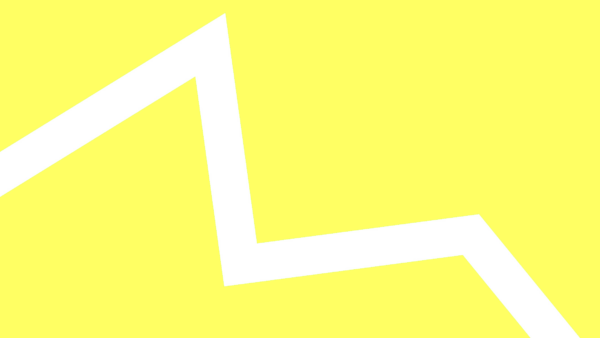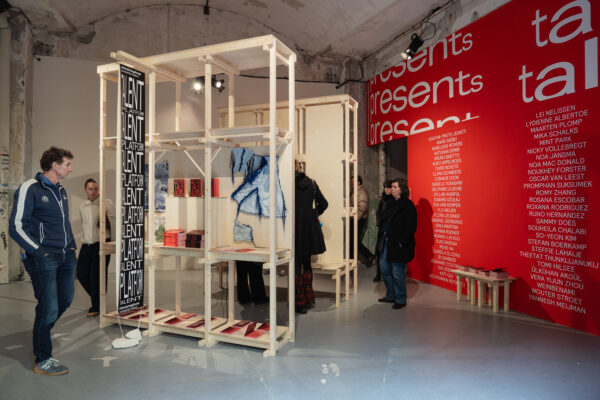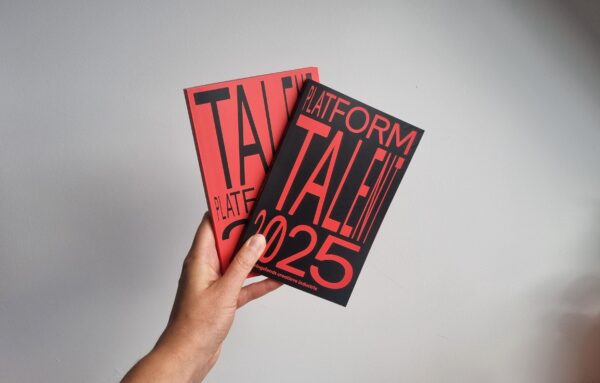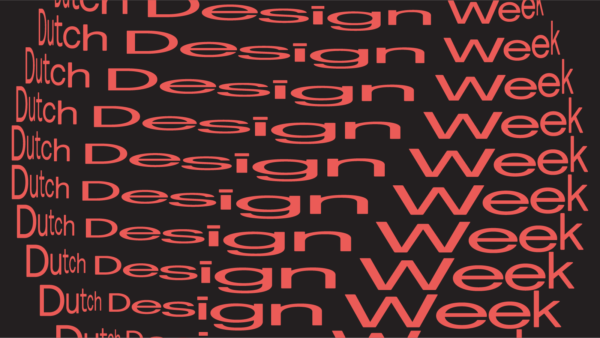

Talent Development – 50 grants awarded
Every year, the Creative Industries Fund NL offers emerging design talent the free space to focus on artistic and professional growth. The 2023 group was recently determined by the selection committee. There were 50 grants available.
8 September 2022
After a pre-selection from 204 portfolios in the first round of the Talent Development Grant Scheme, and four scout nights during which 40 young makers presented themselves to a jury, the selection committee assessed 93 development plans in the second round. The committee, consisting of Angelique Spaninks (chair), Daphne Bakker, Paulien Bremmer, Aiman Hassani, Lotte van Laatum, Joris Landman, Siuli Ko, Hellen van Rees, Meis Suker and Tim Terpstra, selected 50 plans from this list. Of these plans, 10 followed the selection procedure via the scout nights. Each applicant selected will receive € 25,000, which gives them the opportunity to develop their artistic practice further in the coming year, both artistically and professionally.
In the assessment, the committee paid attention to the quality of the objective and structure of the development plan, environmental awareness and positioning of the practice within the discipline and in the social context, development capacity and, finally, the degree to which the development plan and proposed activities contribute to the development of a distinctive and meaningful practice within the creative industry.

general impression
Applications to the Talent Development Grant Programme come from across the entire breadth of the field, and this year’s selection is a good reflection of that. However, the tendency is that fewer and fewer applications are submitted by makers who work in an applied manner. The number of applications from product designers with a classical approach to the profession is declining. Applications for more applied practices are also lacking in the field of graphic design, just as in fashion and textiles, where it can be seen that an increasing number of designers are focusing on research or interdisciplinary work. For digital culture, there is an increase in performative practices, but applications relating to games, coders or hackers are missing. The number of architecture applications also continues to lag behind other fields this year.
The committee sees a generation with social commitment. Overarching themes that often recurred this year were nature versus artificial, geopolitics, attention for the ‘non-human perspective’, the climate crisis and mental health. This translates into a relatively large number of applicants who recognize themselves in the category of social design. There are also many makers and designers who conduct research into materials or the process of making. In the field of digital culture, applicants’ research often focuses on questioning systems, including capitalist systems, and the increasing institutional power of technology. A new tendency that is emerging here is ‘worldbuilding’, where applicants build their own utopian or post-apocalyptic, complex worlds, in which they try to dismantle these systems.
It is striking that a large proportion of applicants choose traditional forms of presentation, such as a book. With a view to knowledge sharing and audience development, other forms of presentation are also interesting and innovation in this area is encouraged.

selection
The following 50 designers and makers have been selected:
Afsaneh Ghafarian Rabe’l
Al Walker
Anna Wonders
Anni Nöps (Wetware)
Benjamin Earl
Colin Wegman
Constanza Castagnet (CCNet)
Deborah Mora (Orah)
Dérive (Hedwig van der Linden & Kevin Westerveld)
Elif Ozbay
Elizaveta Koroleva (Federmess)
Estelle Barriol (Studio ACTE)
Florian Regtien
Florian van Zandwijk
Gijs Schalkx
Hattie Wade
Igrien Yin Liu (刘寅)
Iris Lam
Ivo Brouwer
Javier Rodriguez
Kalkidan Hoex (theNEWtribe)
Lindsey van de Wetering
Line Arngaard (Studio Line Arngaard)
Maarten Brijker
Malik Saïb-Mezghiche (dojo)
Manal Aziz
Maren Bang
Margherita Soldati
Mario Gonsalves
Martijn Holtslag (Ongewoon Onbegrensd)
Matilde Patuelli
Moreno Schweikle (Studio Moreno Schweikle)
Myrthe Krepel
Nöelle Ingeveldt
Nohaila Gamah
Nóra Békés
Paul Coenen
Paul Kuijpers (Cindy van der Loan)
Pernilla Philip
Pim Boreel
Siddharth Pathak
Sophia Holst
Steef Offerhaus
Stephanie Idongesit Ete
Sunjoo Lee
Taya Reshetnik (studio2992)
The Nightmare Disorder (Benji Nijenhuis en Nemo Cheminée)
Tim van Hooft
Timothy Scholte
Tymon Hogenelst (Studio Wild)

kick-off
Because the Fund attaches great value to the exchange of knowledge and also wishes to connect individual makers with each other, we organized a kick-off for all the makers and designers mentioned above on 7 September 2022. The programme included visits to the studios of Sabine Marcelis, ST-DUO, Felixx Landscape, Isaac Monté, Johannes Langkamp and Studio Makkink & Bey.
Foto's: Mark Bolk






